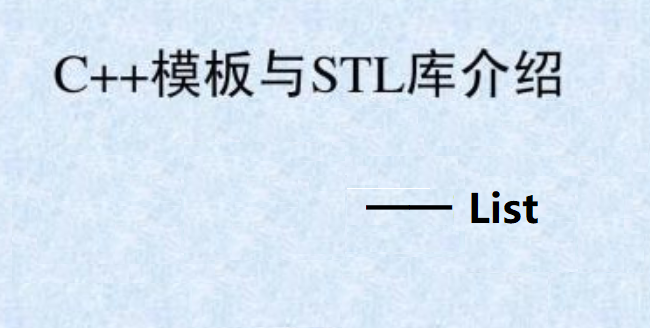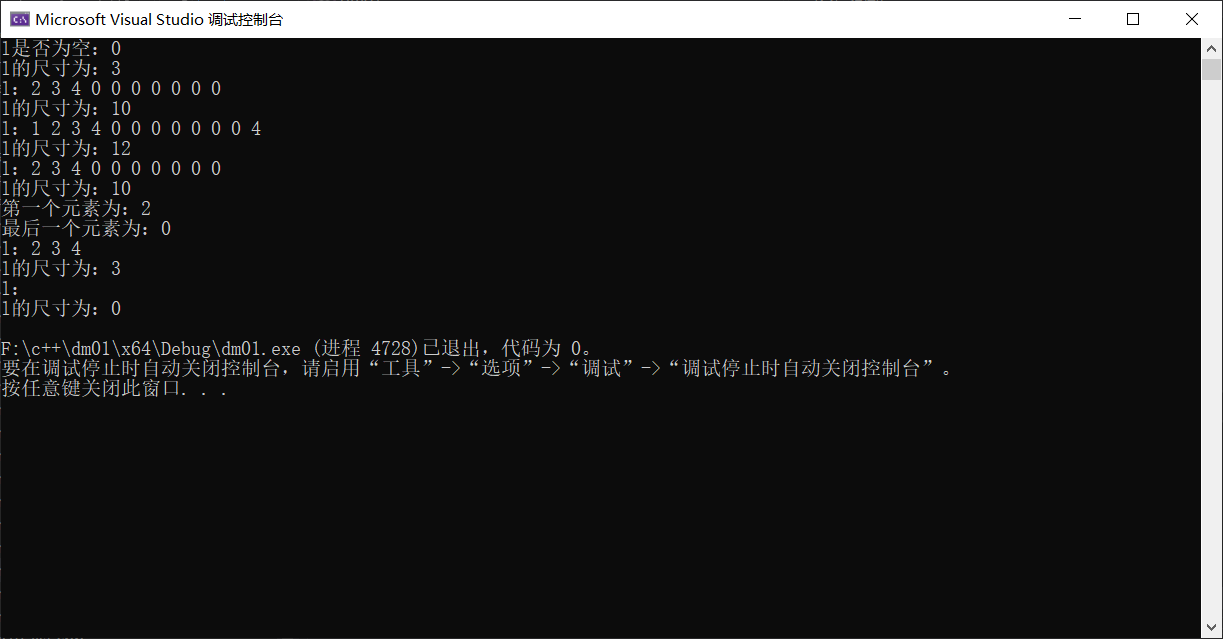
C++容器(List)
容器是C++非常方便的功能,今天给小伙伴们介绍List库,List库是C++中的链表容器,其优点是不会造成内存的浪费和溢出,这和Vector相反,而且插入元素非常方便。但是缺点也很明显,需要一个额外的内存空间存放指针,而且因为其不按照内存进行存放,因此遍历花费时间较长。
List容器
1 | #include<iostream> |

C++小结
list容器使用并不是很频繁,一般都是使用vector和deque就可以完成大部分的应用场景,而且list不方便的地方在于无法通过下表对元素进行索引,因此小伙伴们作为了解即可。